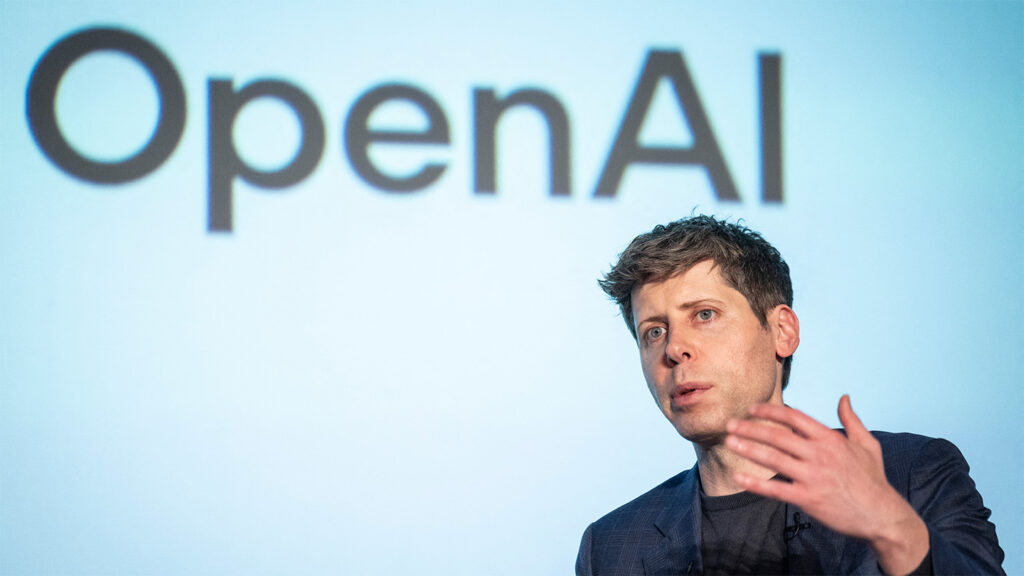Empire of AI
Karen Hao
Penguin Press | $32
If you’ve been following the meteoric rise of artificial intelligence in the last decade, you may have read articles by tech journalist Karen Hao in the Atlantic, the Wall Street Journal or MIT Technology Review. In her debut book, Empire of AI, Hao employs her expertise to investigate the cutthroat world of AI. The result is a jaw-dropping indictment of an industry that operates with little check.
The book chronicles the modern-day race to develop AI, the breakneck pace of which has largely been set by the rise of OpenAI, the Microsoft-backed startup behind the chatbot ChatGPT. From the beginning, OpenAI deems itself as a conscientious steward of AI compared with rivals like Google and Chinese tech companies. OpenAI starts out as a nonprofit, vowing to share its research for the collective benefit of humankind rather than to chase commercial hotcakes. But under the leadership of CEO Sam Altman, whom Hao depicts as a powerful and morally gray figure, the company succumbs to the temptation of chasing profit over the higher ideals of making AI available to all.
Today, in pursuit of supremacy among its competitors, OpenAI has reneged on its founding commitments to share its research and maintain transparency in its operations. But the company still believes that its quest is noble. By insisting that developing AI can lead to a better future, it justifies bending ethical norms and running roughshod over its workers. As Hao writes, “a better future for whom?”
OpenAI isn’t the only AI company with this approach, though its commercial success set the tone for other companies to follow. Hao makes it clear that AI itself isn’t the problem. Instead, it’s the culture of developing new AI capabilities first and at all costs, which is spearheaded by OpenAI and an exclusive clutch of companies with the financial power and political influence to ensure regulators don’t look too closely at its operations.
Hao likens this modus operandi to that of a modern-day empire. Just as a colonizer ravages its colonies to feed its own expansion, tech megacorporations achieve their goals by trampling over marginalized communities in its sphere of influence. The collateral damage of AI’s expansion includes the depletion of natural resources in developing countries to feed the AI beast, as well as Venezuelan and Kenyan workers who slog away at annotating training data and moderating content for scant compensation. Throughout the book, Hao emerges as a welcome voice of clarity and objectivity in stark contrast to tech companies’ obsession with dominating the industry.
But it is possible for AI to be less colonial and more democratic, Hao argues. For instance, she points to a small, Indigenous-driven effort in New Zealand to use AI to revive the dying language of the Māori people. To achieve this humble utopia, Hao contends that we must revolt against the empire. This means educating the public on AI, tightening regulations so developers are more transparent, and encouraging researchers to explore different paths toward AI, away from the dominance model. The roadmap is a little rudimentary, but it’s a good start. After all, Hao writes, the embers of revolution already burn in us: They come from our sense of community and humanity — something that AI will be hard-pressed to grasp.
Buy Empire of AI from Bookshop.org. Science News is a Bookshop.org affiliate and will earn a commission on purchases made from links in this article.
Read the full article here


